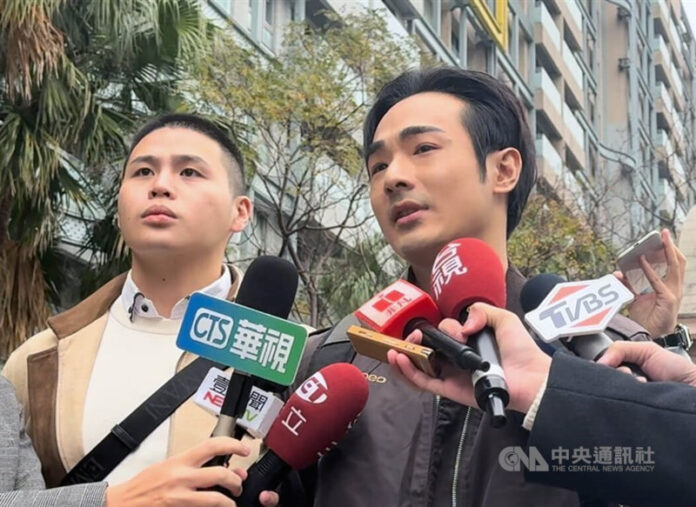Introduction
Taiwan’s Mainland Affairs Council (MAC) has issued a strong warning to citizens, particularly online influencers, against engaging in activities that involve accepting funds or instructions from China to promote pro-Communist Party of China (CCP) content. The warning follows a recent documentary by a Taiwanese YouTuber highlighting how China is attempting to influence public opinion in Taiwan. The government stressed that such actions could violate Taiwan’s national security laws, including the Anti-Infiltration Act.
MAC’s Warning: National Security at Risk
The MAC reminded the public that accepting funds or directions from foreign hostile forces, such as China, to spread propaganda or influence Taiwanese society can lead to serious legal consequences. The Anti-Infiltration Act prohibits activities that could disrupt social order, spread misinformation, or interfere with elections. Taiwan’s authorities have emphasized that cooperation with China, particularly the CCP, is not allowed without explicit government approval.
The MAC also stressed that online influencers, who have become key players in shaping public opinion, could be used as tools in China’s cognitive warfare against Taiwan. In a statement released on Saturday, the MAC warned that the government would take appropriate action if these laws were found to have been violated.
The Role of Online Influencers in China’s Propaganda Efforts
In recent years, Chinese influence operations have increasingly focused on social media, with influencers becoming unwitting or willing participants in promoting pro-China narratives. The MAC has emphasized that while Taiwan upholds freedom of speech, this freedom does not extend to activities that violate cross-strait laws, such as supporting CCP agendas.
Culture Minister Lee Yuan echoed the MAC’s concerns, reminding the public of Taiwan’s hard-won freedom of speech. He also assured that the Ministry of Culture would work with the MAC to address any violations related to cross-strait laws.
The Documentary and Its Impact
The issue gained widespread attention this week after popular Taiwanese YouTuber Pa Chiung released a documentary on the subject, which has already garnered over a million views. In the 40-minute video, Pa Chiung explores Chinese influence operations, interviewing Taiwanese rapper Chen Po-yuan, who shared his experience of being unknowingly involved in a CCP-backed campaign.
Chen described how, in the past, he worked with Chinese government agencies to promote his music but later realized that he was being used to support a pro-unification agenda. He admitted to receiving guidance from China’s United Front Work Department (UFWD), a key CCP organization responsible for influence operations abroad.
The documentary also included footage of Chen interacting with a Chinese state media outlet, “The Strait Herald,” where he pretended to be interested in becoming a pro-China influencer. The outlet reportedly offered “resources” for collaboration, indirectly suggesting the involvement of Taiwanese influencers like Chung Ming-hsuan, a popular content creator with over 1.25 million followers on YouTube.
However, Chung later clarified on social media that he had been misrepresented in the documentary and that his travel videos were self-funded, not influenced by China.
Key Facts: Laws and Regulations on Foreign Influence
| Fact | Details |
|---|---|
| Anti-Infiltration Act | Prohibits Taiwan citizens from taking funds or instructions from hostile foreign forces like China. |
| Cognitive Warfare | The CCP is using influencers in Taiwan as part of its broader strategy to influence public opinion. |
| Government Response | Taiwan’s authorities will take action against influencers violating cross-strait laws. |
| Involvement of Online Influencers | Online content creators, like YouTubers, play a critical role in shaping public opinion and are increasingly targeted by foreign influence operations. |
FAQs
1. What is the Anti-Infiltration Act?
The Anti-Infiltration Act is a Taiwan law that prohibits citizens from accepting funds or instructions from hostile foreign forces, including China, to engage in activities that disrupt social order, spread false information, or interfere with elections.
2. How is China influencing Taiwanese influencers?
China has been attempting to influence Taiwanese influencers by offering resources and support to promote pro-CCP content, often through covert means such as the United Front Work Department.
3. What happens if Taiwanese influencers violate the law?
If an influencer is found violating Taiwan’s national security laws, such as engaging in pro-CCP activities without government approval, they could face legal action from Taiwan’s authorities.
4. What is the role of online influencers in Taiwan’s security?
Online influencers are increasingly seen as a key part of Taiwan’s cognitive defense against foreign influence, as they have the power to shape public opinion and could be used as unwitting or willing agents in disinformation campaigns.
5. How has Taiwan responded to these incidents?
Taiwan’s Mainland Affairs Council (MAC) has warned citizens about the dangers of engaging in pro-CCP activities and emphasized that cooperation with China is strictly prohibited unless authorized by Taiwanese authorities.
Conclusion
The Taiwanese government’s warning serves as a reminder of the complex geopolitical pressures that Taiwan faces from China. As online influencers gain prominence in the digital age, their role in Taiwan’s national security becomes ever more significant. Taiwan remains committed to protecting its sovereignty and upholding its democratic values, even as external forces continue to attempt to interfere in its internal affairs.
For more updates on Taiwan’s national security and international relations, visit https://cialisweb.tw.
